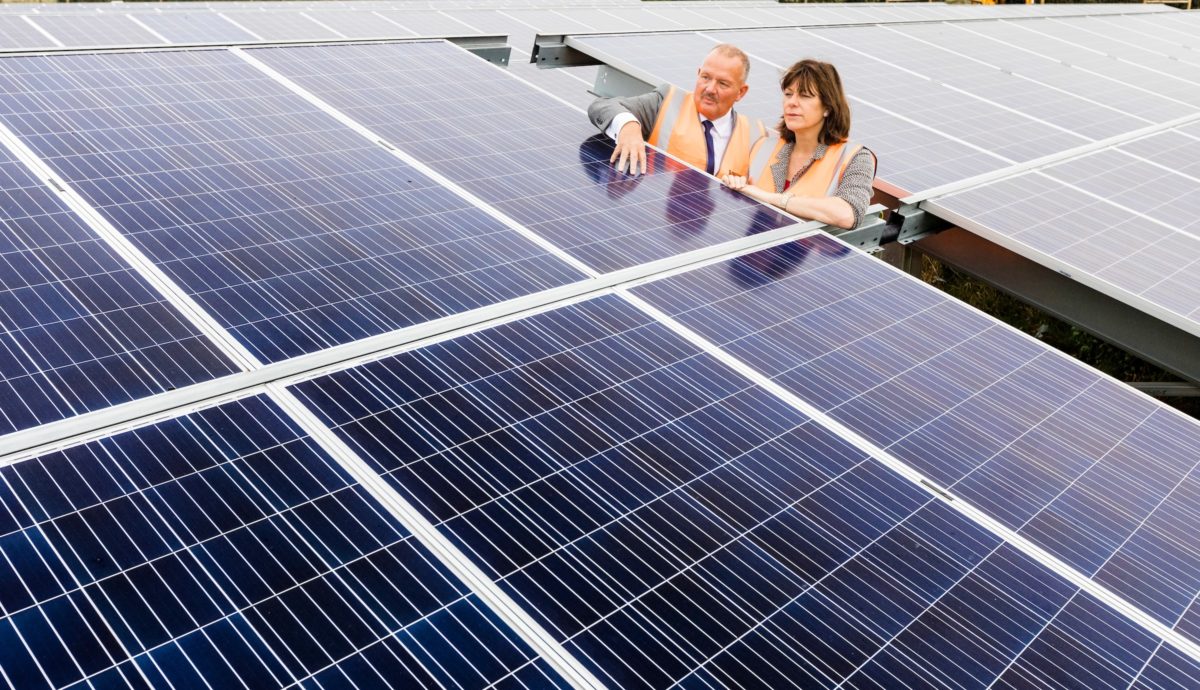Oxford-based analysts Aurora Energy Research have published a report this week that forecasts strong growth for subsidy-free renewable energy across most of northwestern Europe.
The report, titled Managing Market Risk in Renewables, suggests that in the U.K. alone, as much as 18 GW of subsidy-free renewables could be installed and grid connected between now and 2030, with that figure rising to 60 GW for northwestern Europe (which counts as the U.K., Germany, France, Ireland, the Netherlands and Belgium).
Solar PV can account for half of that 60 GW figure, Aurora says.
As such, the overall renewable energy sector in this region could unlock investments of up to €180 billion (US$221 billion), of which €64 billion would be for subsidy-free renewables.
These calculations were reached this week at Aurora Energy Research’s Spring Forum, which gathered senior industry heads to assess the future direction and growth of Europe’s energy sector.
One of the key drivers for such bold growth would come from allowing subsidy-free renewables to bid for contracts in capacity markets, a move that the analysts call a “game changer”.
“Back in 2010 at the start of the U.K.’s Electricity Market Reform process, few would have imagined that by 2018 we would be taking about a subsidy-free future for renewables,” said Aurora’s keynote speaker at the Forum, Mateusz Wronski.
“Yet, this is where we have arrived, and our research highlights clearly the enormous prize and potential in the market, not only in the U.K., but across Europe. This will be a true game changer for the energy industry and policy makers, with a knock-on effect on baseload technologies as well as flexible generation.”
The growth of subsidy-free renewables, particularly solar, was notable in 2017, with projects in the U.K., Germany and the Netherlands. In Sweden, meanwhile, a new 650 MW PPA has been signed for an onshore wind project delivered by GE and the Green Investment Group – completely free from government subsidies.
The growing emergence of corporate PPAs is helping to de-risk projects, the analysts said, with other factors such as revenue-stacking and savings generated by collocating battery storage systems at large-scale renewable sites also poised to have a positive impact on the growth of subsidy-free renewables.
Allied to this growing confidence and creativity in installation and funding are continued cost declines, particularly in solar energy, that will deliver grid parity across the region by the early 2020s. Increased commodity prices will also expedite this shift.
“The nature of these investments are fundamentally different,” Wronski explained. “It is merchant risk and hence investors have to understand their exposure to power price, and to the complex set of market drivers that shape the power price, including commodity prices, but also the deployment of renewable energy and the amount of flexibility in the system.”
An additional impact that affordable, standalone renewable energy growth will have is to destabilize the foundations of traditional baseload power generators, such as nuclear and gas CCGTs, while simultaneously boosting the attractiveness and deployment of complementary technologies such as batteries and peakers – essentially ushering in a more flexible, affordable age for European power.
Future policy must learn to swim with the tide, Wronski adds, stressing that by allowing subsidy-free renewables to participate in capacity markets, the pace of development will accelerate. “Opening up balancing and ancillary services markets would also provide additional upside,” he said. “Subsidy-free Contracts for Difference (CfDs) could indeed be a game changer, providing a bridge before a deeper PPA market emerges.”
In the U.K., the capacity market – which is the government-backed scheme to guarantee power supply during the winter – has seen prices pushed so low as to be unviable for new large gas power plant construction. As such, if prices continue to plunge, the viability of renewables continues to increase.
This content is protected by copyright and may not be reused. If you want to cooperate with us and would like to reuse some of our content, please contact: editors@pv-magazine.com.



1 comment
By submitting this form you agree to pv magazine using your data for the purposes of publishing your comment.
Your personal data will only be disclosed or otherwise transmitted to third parties for the purposes of spam filtering or if this is necessary for technical maintenance of the website. Any other transfer to third parties will not take place unless this is justified on the basis of applicable data protection regulations or if pv magazine is legally obliged to do so.
You may revoke this consent at any time with effect for the future, in which case your personal data will be deleted immediately. Otherwise, your data will be deleted if pv magazine has processed your request or the purpose of data storage is fulfilled.
Further information on data privacy can be found in our Data Protection Policy.